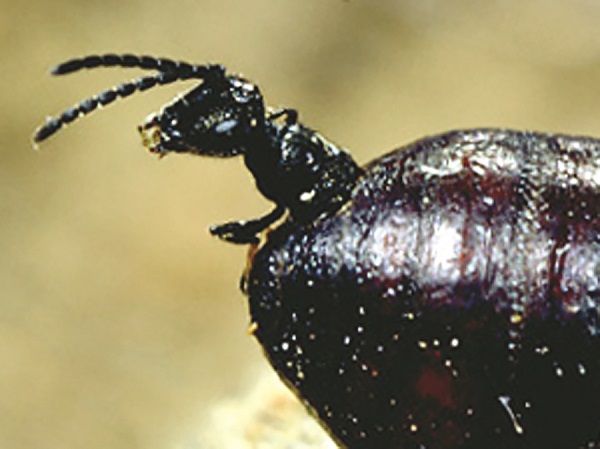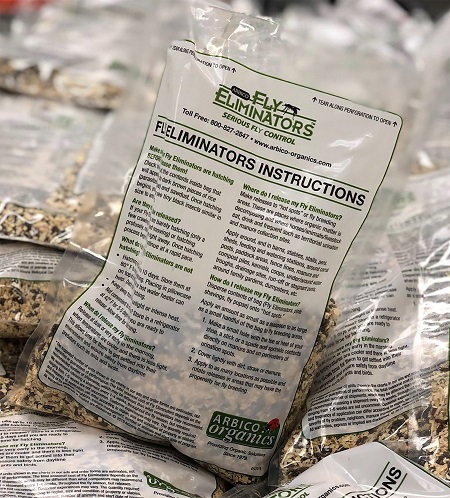
You’ve likely heard about targeting aphids and caterpillars with pest prevention methods, but have you thought about how you can control flies that buzz into your grow operation? Flies are not a traditional pest, but if they’re left unmanaged, you will quickly find that your garden is falling into disrepair. If you’re especially unlucky, flies can carry harmful diseases that can be harmful to plants, animals, and humans.
Flies are attracted to dead and decaying organic matter. They will swarm compost piles and become ubiquitous around dead plant matter. These locations are where female flies will deposit their eggs, which once laid quickly develop into microscopic maggots that devour the decaying matter around it. Although compost and dead plant matter are the chief concerns for gardeners, fly control is by no means a problem exclusive to horticulture. Dairy and beef farms, horse racetracks, zoos—all these places require fly management options.
Step one to managing a fly population is to keep a clean growing area. Check out this quick list from ARBICO Organics to better understand where breeding hot spots appear in a growing area.
Manure & Urination Areas
• Barns, stables, stalls, hospital pens, or loafing sheds
• Around corral posts, paddock areas and fence lines
• Around manure piles, pits, bins, or carts
• In kennels, runs or coop areas
Watering & Feeding Areas
• Under water troughs & near barrels, buckets, or other devices
• Where spilling, dripping or leakage occurs
• Around bathing areas, drainage sites, and run-off areas
• Areas where feed, straw, or hay have decomposed
Other Fly-Breeding Areas
• Around compost piles and family gardens
• Alongside garbage cans
Even if you’re maintaining a hygienic greenhouse, you can still have issues with flies, especially if you’ve invested in making your own compost. A common countermeasure to flies is to hang fly paper, also known as fly traps. Fly paper is sticky, sweet-smelling paper that is hung from racks or the ceiling. Flies are attracted to the paper, and when they land on the paper, they are immobilized. While fly paper is great at dealing with adult flies, there are ways that you can prevent flies from ever becoming adults.

If you’re reluctant to use chemical sprays to prevent fly maturation, ARBICO Organics offers Fly Eliminators™. Fly Eliminators are a type of fly-targeting parasite that will burrow into organic waste to locate fly pupae. Once a female Fly Eliminator locates fly pupae, she will lay her own eggs in the pupae, killing the immature fly. Mature Fly Eliminators will hatch in 17-21 days, and the cycle will begin again. Fly Eliminators are nocturnal and will not harm plants or pets. Combining Fly Eliminators with proper waste management and fly traps can give you a three-pronged attack that can eliminate stubborn fly infestations. It should be noted that Fly Eliminators only help control manure or filth flies and are not intended to control waterborne flies, such as deer flies.
Please note that chemical or fumigation methods should not be used alongside Fly Eliminators. The need for fly control can vary widely based on the facility. For assistance with developing a personalized program, as well as information about introducing a Fly Eliminator population, go to ARBICO-Organics.com or speak to a Customer Service Representative at 800-827-2847.
ARBICO Organics was founded in 1979 in Arizona. Over 40 years later, ARBICO Organics continues to produce innovative means of natural biological pest control for a wide range of consumers. Their product line up ranges from environmentally friendly solutions to common garden pests to biological powerhouses used in professional agriculture and at racetracks.
Related Articles & Free Email Newsletter Sign Up
How to Attract Bees, Butterflies, and Birds to Your Garden
Why Green Lacewings Are the Best General Predator for Gardens & Greenhouses


Comment here